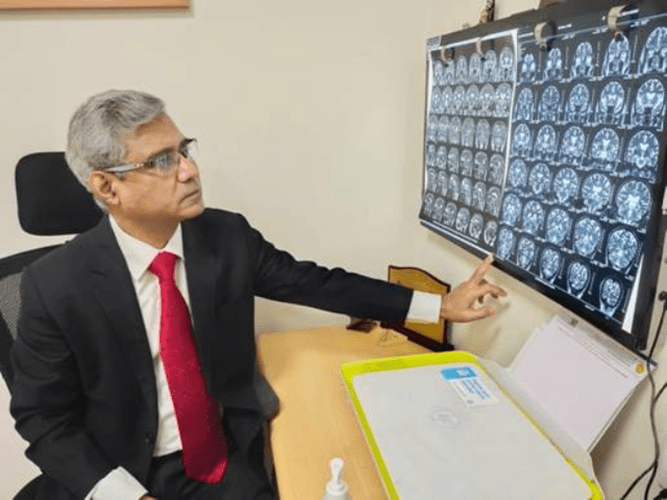Researchers from India have found that six months of daily meditation can increase grey matter in patients with mild cognitive impairment (MCI) or mild Alzheimer’s disease. Therefore, meditation protects the brain in these patients.
MCI makes people forgetful, but they can still live independently. But they have a higher risk of Alzheimer’s. Alzheimer’s disease is a progressive, irreversible, global health problem with huge socioeconomic implications. Despite this, there is no medicine that can alter the progression of the disease or stop or delay it. Except for one prohibitively expensive drug that’s still being studied.
Participating Institutions
Research funded by the Department of Science & Technology, Govt. Of India was led by Dr. Amitabha Ghosh Director and Head Department of Neurology, Apollo Multispecialty Hospital Kolkata, in collaboration with Dr. S Bapi Raju Cognitive Science lab at IIIT Hyderabad. It shows that a simple, cheap, easy-to-follow meditation routine, practiced daily for several months, can reverse grey matter loss in MCI and even mild Alzheimer‘s. Frontiers in Human Neuroscience published this work.
Key Findings
The researchers randomly assigned patients with MCI or mild Alzheimer’s disease to meditation or control groups. Meditation group practiced 30 minutes of silent, sitting meditation every day for six months. All patients had MRI scans at baseline and after 6 months, as well as neuropsychological testing. In the meditation group, grey matter increased over the frontal areas of the brain that control attention and goal-directed decision-making and reduced over the back. There was also an increase in grey matter in the left hippocampus (memory) and right thalamus. Among the meditators, the team found a trend towards better attention.
Why do we wake around 3 am and dwell on our fears and shortcomings?
MCI and Alzheimer’s disease meditation research is still young, according to the researchers. Researchers have previously combined meditation with physical postures, movements, mantras, kriyas, or other mindfulness techniques. Practice usually lasts 8-12 weeks. Studies where it did extend for longer, did not include brain changes. This is one of the first on brain changes in MCI and Alzheimer’s disease that explores the effects of silent, sitting meditation alone, practiced daily over a long term. The techniques are similar to those commonly practiced by regular meditation practitioners yet simplified enough to train a patient with early memory loss.
“Much of our waking state is spent on mind ruminating. Excessive mind wandering, especially when loaded with persistent negative thoughts, damage the brain, predisposing one to early aging or even Alzheimer’s disease. Meditation teaches non-judgmental and non-reactive awareness of appearing thoughts and improves one’s ability to disengage and focus on intended goals. By doing so, meditation activates a set of brain networks which co-ordinate to increase attention and goal-directed behaviour, and reduce mind wandering and emotional reactivity,” Dr. Amitabha Ghosh explains.
What lies ahead?
This research suggests that spending a bit of time every day on meditation practice could be protective for patients with memory loss. The earlier one starts practicing meditation, the better the results may be. The team plans to follow up on this work with much larger participant numbers and longer durations of study.

